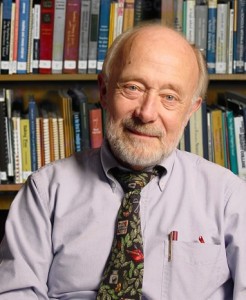 Marcus Borg is professor emeritus in the philosophy department at Oregon State University, where he was the Hundere Chair in Religion until his retirement in 2007. He is also the only author to ever make my top ten books of the year list in consecutive years (2011 and 2012). Recently, he joined Patheos. In his introductory post explaining who he is and what he will be blogging about, Borg explains the reality of what American Christianity is today:
Marcus Borg is professor emeritus in the philosophy department at Oregon State University, where he was the Hundere Chair in Religion until his retirement in 2007. He is also the only author to ever make my top ten books of the year list in consecutive years (2011 and 2012). Recently, he joined Patheos. In his introductory post explaining who he is and what he will be blogging about, Borg explains the reality of what American Christianity is today:
My (and our) cultural context is a deeply divided American Christianity. To use shorthand labels, the great divide is between “conservative” Christians and “progressive” Christians, with many Christians in between. Conservative Christianity, often called “the Christian Right” even though not identical with it, is the most publicly visible form, dominating Christian television, radio, and political involvement.
In general, conservative Christians affirm biblical inerrancy, infallibility, and literalism: if the Bible says something happened, it happened; if the Bible says something is wrong, it’s wrong. They emphasize our sinfulness and that Jesus died to pay for our sins so that we can be forgiven and go to heaven. Their political passion tends to be individualistic, focusing on issues of personal behavior. And most emphasize that Jesus and Christianity are the only way of salvation.
For many in our time, conservative Christianity is Christianity.
So What?
As one who has spent my entire life in congregations with links to denominations that are part of mainline Protestantism, I know well that so-called conservative Christianity isn’t the only kind of Christianity. Nonetheless, I have encountered many people over the years and even some in recent months who think all Christianity is just like that which is popularly portrayed and which many label conservative Christianity.
With nearly 40,000 recognizable denominations the idea that any one “type” of Christianity or one grouping of types represents all of Christianity is absurd. Whether you think of yourself as progressive or conservative or something in between, as a follower of the way of Jesus you should recognize and represent a Christianity that is far larger than your own experience.
- How have you encountered the idea that American Christianity is all alike, and is modeled in the form of conservative Christianity?
- What are some benefits you see from increased awareness by larger numbers of Americans that Christianity is a religion with many diverse subgroups?